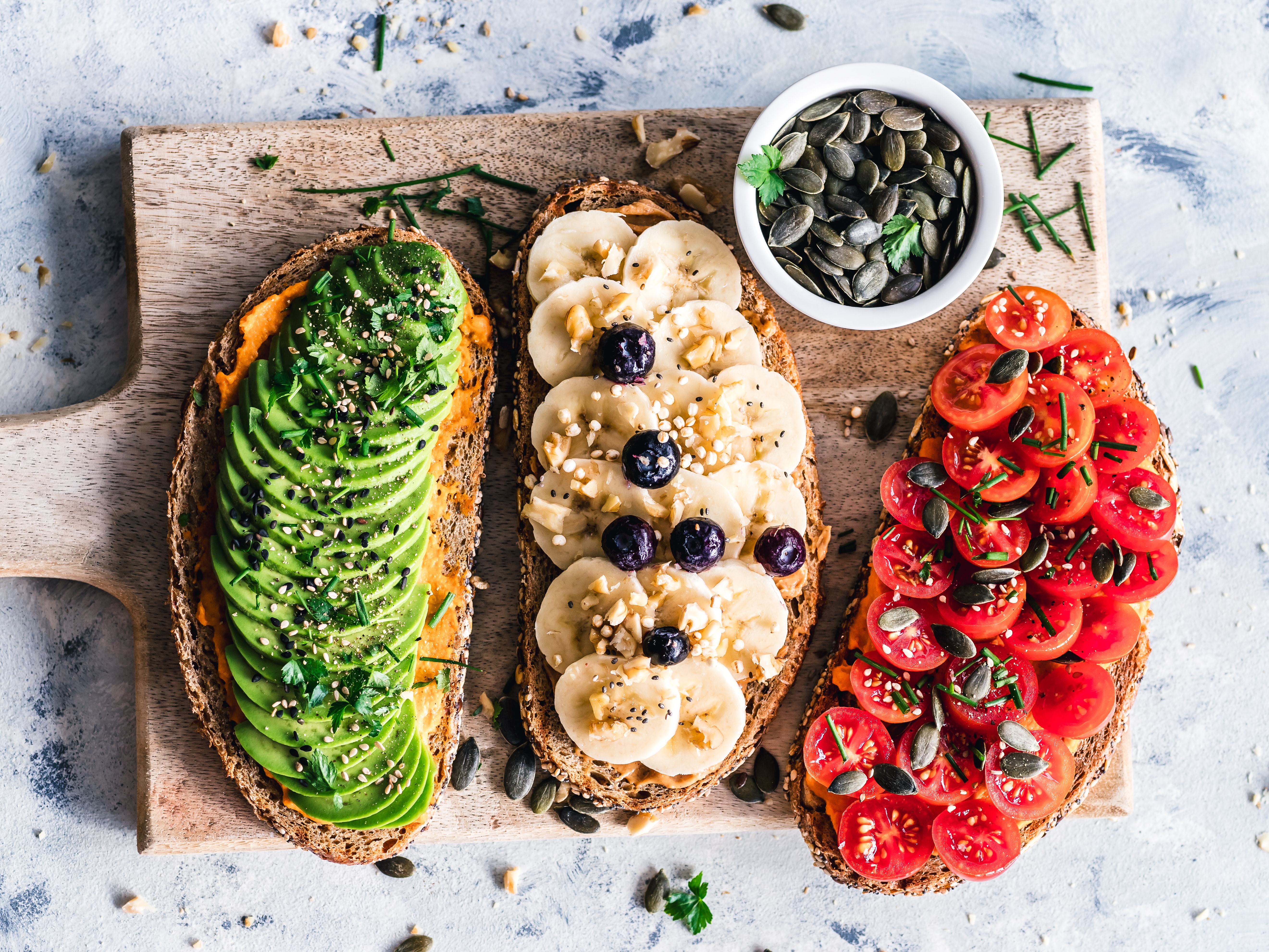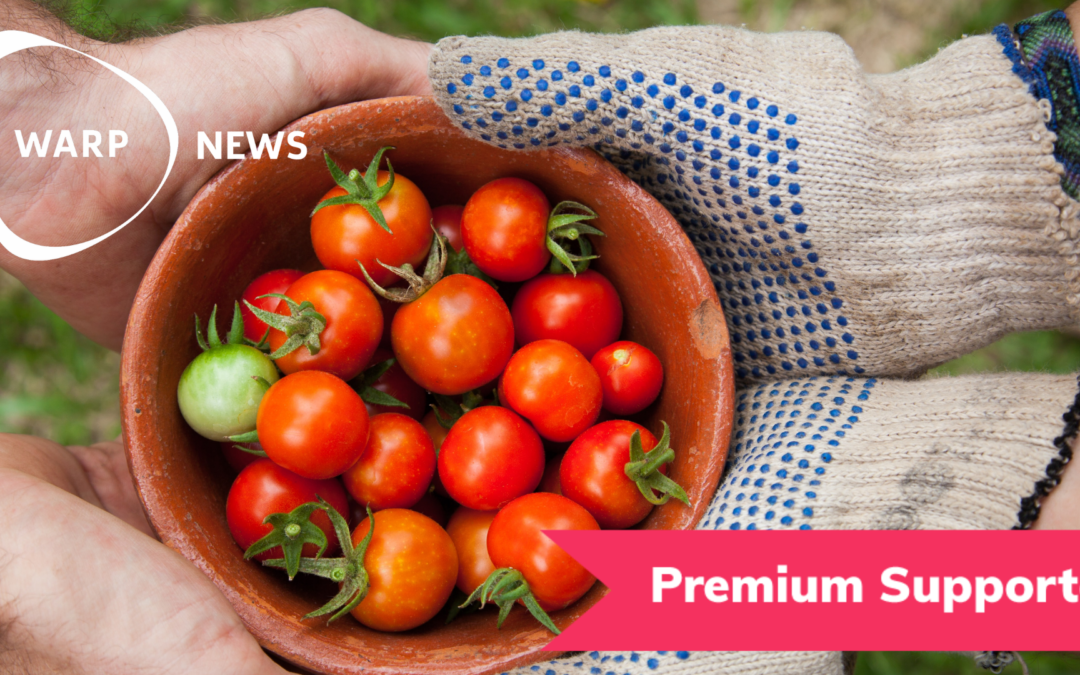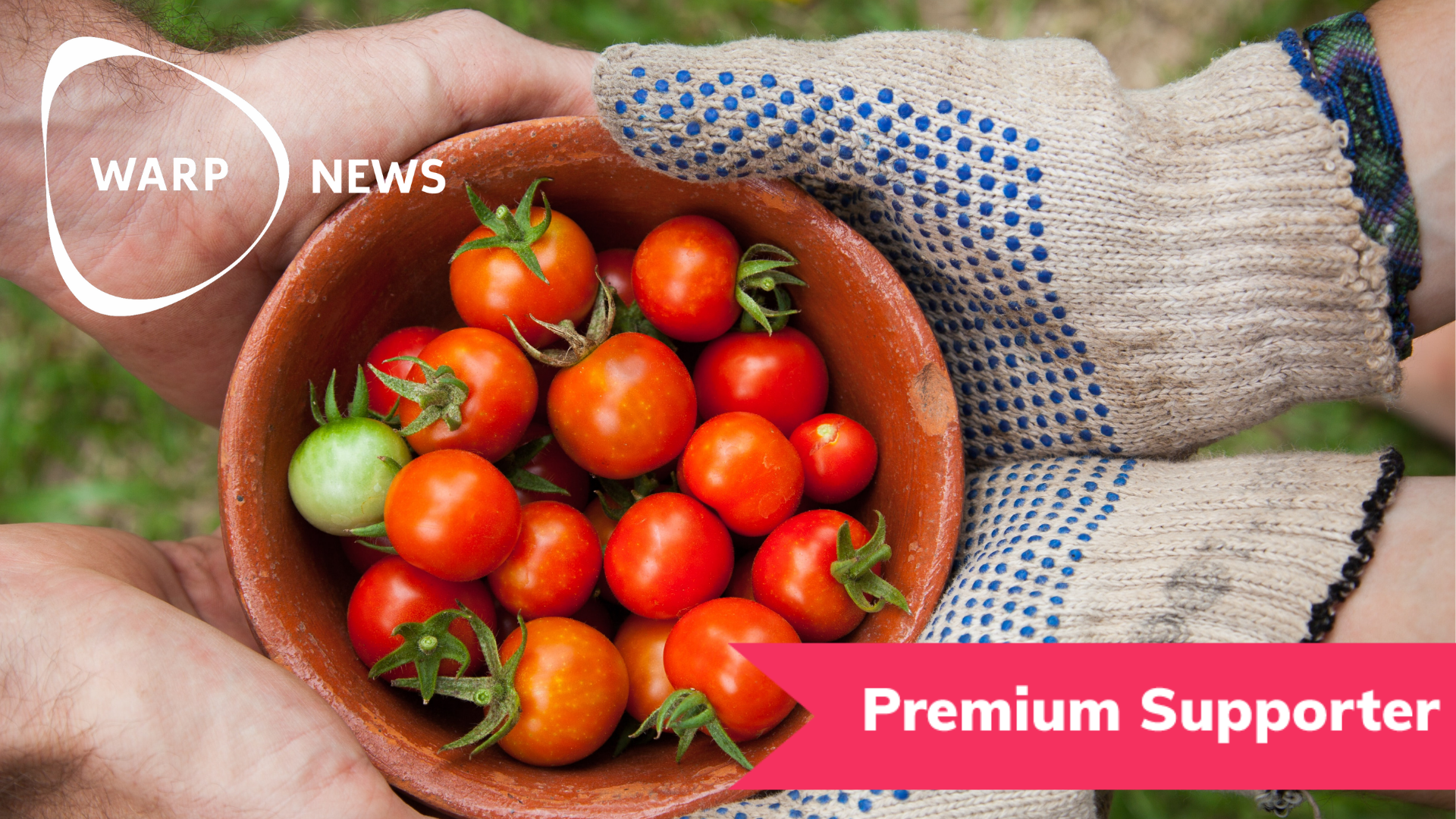
Right now, we have a special offer: One-year Premium Supporter for $25 for the first year. (Renews annually at regular price of $100/year.)
The offer is valid until 6 February.
Switching to a flexible diet with less meat, based on vegetables and grains and some meat variants (as cultured one), can bring immediate benefits in terms of health, sustainability, ethics, and cost.
And the best part is: we have all the technological and practical means to adopt it right here and now, or at least very soon.
On a planet where almost eight billion people now live together, one of the biggest challenges is to provide everyone with healthy and correct nutrition. While malnutrition problems persist for the low-income populations, many other issues like obesity affect the wealthiest nations.
Meat is at the same time one of the most consumed foods and the leading cause of many diseases and climate change. An obvious alternative is to provide everyone with a mainly plant-based diet. But doubts about nutritional content, food taste-related satisfaction, and the cost remain.

By analyzing the latest research and data and millenary traditions, we will see how it could be beneficial and possible to apply a vegetable-based diet to address all these issues.
And we will ask ourselves a fundamental question: should we stop eating meat?
A constellation of great opportunities provided by a more plant-based diet
In the nutritional field, it's essential to satisfy a specific requirement for micronutrients, such as vitamins, calcium, potassium, magnesium. These are involved, for example, in the regulation of the body development and the immune system.
Despite consuming enough energy foods for our daily needs, the diet isn't complete enough, and malnutrition occurs. In many low-income countries, the diet is mainly based on high-energy value foods (cereals, roots, and tubers) to fight hunger. This leads to a lack of micronutrients found primarily in vegetables and fruit. Problems related to malnutrition, such as anemia and night blindness, can arise. These are problems mainly linked to low-income countries, while the diet normally diversifies when countries become more affluent.
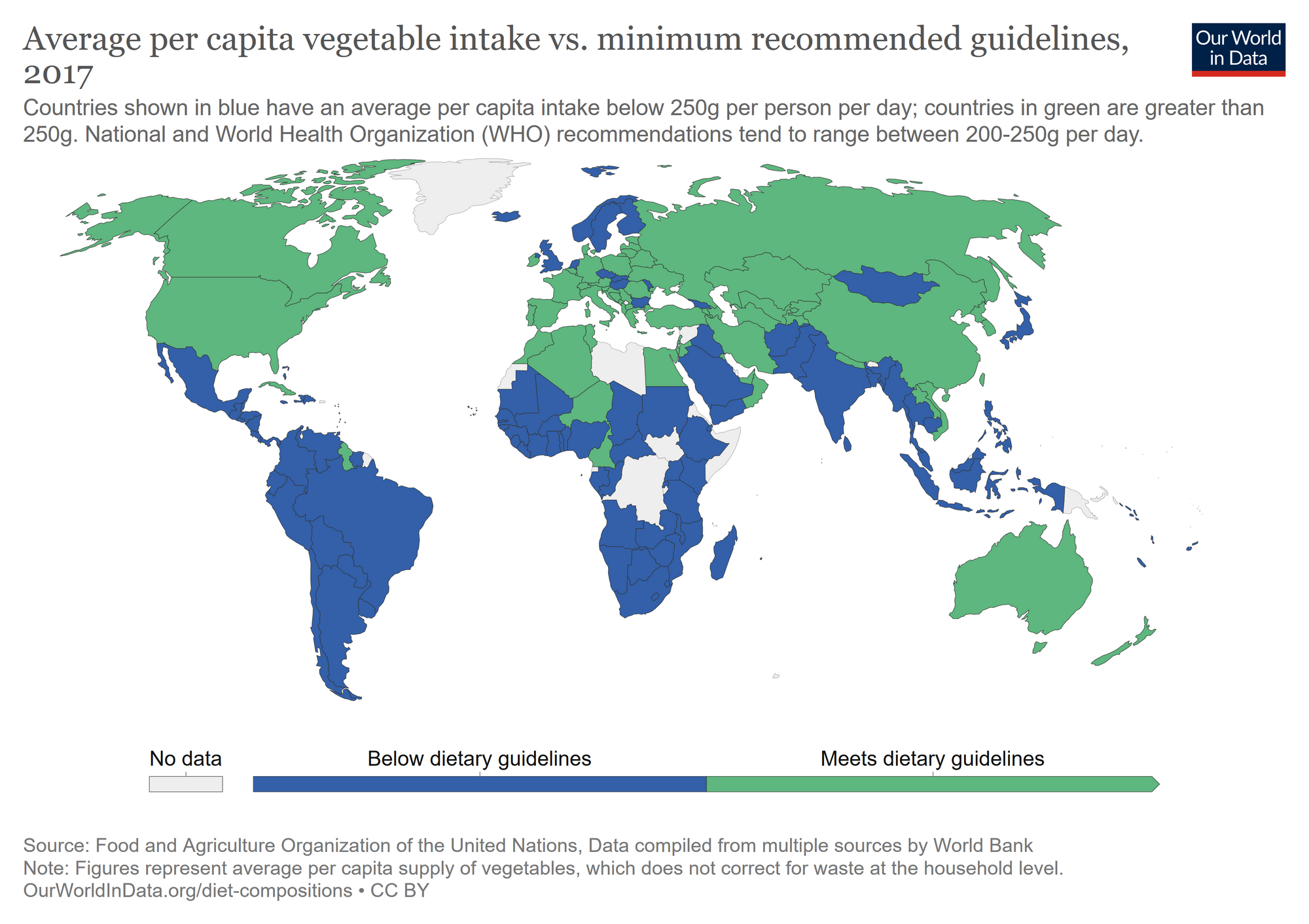
However, with a dramatic increase in calories consumed daily, the risk is to end up with the opposite problem: obesity, the main death risk in high-income countries for young people, responsible for about 4.7 million deaths per year. One of the leading causes is excessive farmed meat consumption: 1.55 kg per week is the European’s current average consumption, triple that recommended by nutritionists.
Research linked other major high-income health problems to meat consumption in recent years. For example, the International Agency for Research on Cancer has classified red meat as "probably carcinogenic to humans" while processed meat as "carcinogenic to humans." For example, it was estimated that every 50-gram portion of processed meat eaten daily increases the risk of colorectal cancer by about 18 percent.
In addition, recent research shows how the consumption of processed red meat leads to an increase in mortality linked to cardiovascular problems if correlated with other risk factors (such as frequent tobacco consumption or obesity). Its replacement with at least a partially vegetarian diet leads to a general reduction in the risk of mortality from cardiovascular problems.
Therefore, on the one hand, the risk is mainly linked to processed red meat, so it's certainly healthier to choose meat produced sustainably. Processed meat is modified to improve its taste or extend the shelf-life, while sustainable beef is free from those industrial processes. On the other hand, a vegetable diet also leads to more benefits and reduces the issues described.
But how should a healthy and balanced diet richer in vegetables be done?
There are plenty of possible variations.
- One famous and examined alternative is the Mediterranean diet, used by all the countries bordering the Mediterranean Sea for thousands of years. It was born from the clash between the classical Greek-Roman civilization and the "Barbaric" one. The former had a diet based mainly on olive oil, cereals, fruit and vegetables, bread, and wine: the latter preferred meat, animal fats, beer, and polenta.
This mix of different civilizations diets is a wealthy, tasty, and varied diet, also recommended by the FAO. Even the landscapes of the other cultures have thus changed, some by integrating animal breeding, some by horticulture.
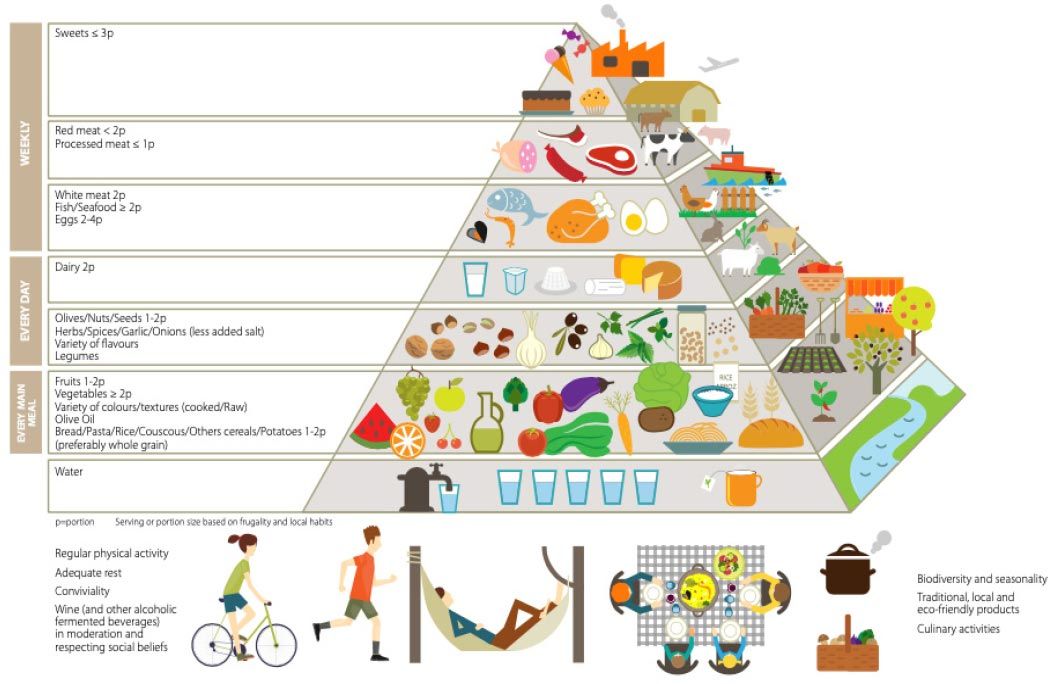
The food pyramid of the Mediterranean diet sees moderate consumption of fish, white meat, dairy products, and eggs. The consumption of red meat is limited compared to other diets. To ensure the supply of fats, extensive use is made of olive oil, which contains less harmful fats than animal ones.
- To these traditional practices could be added food that still is almost unknown. For example, Spirulina Algae was defined as the super-food of the future. Algae contain very high and complete protein, minerals, antioxidants supplies, requiring little land and water consumption for its crop.

Big news: a healthy diet is a climate-friendly diet!
A plant-based diet is more climate-friendly, ethical towards animals and biodiversity, but above all, healthy. For that reason, FAO, in its Food-based dietary guidelines, as a first suggestion, indicates to eat more vegetables and fruit, especially the ones rich in fiber vegs such as cauliflower, broccoli, beans, and onions. Other tips include incorporating less sugar, salt, unhealthy fats, and meat into your alimentation, drinking abundant water, and mainly diversifying your diet.
So, can be a diet with a higher vegetable consumption more sustainable for the environment than a meat-based one?
A study carried out by SlowFood in partnership with Indaco2, a spin-off of the University of Siena, demonstrates the evident bond between a healthy diet and a climate-friendly diet.
A comparison was made between an unhealthy weekly diet based on ultra-processed animal protein from factory-farmed meat and a healthy diet of fresh cereals and vegetables cultivated with sustainable practices. The result is that opting for the latter means saving 23 kg CO2 every week.
Similar results are illustrated by the Project Drawdown, a no-profit organization that represents all the solutions to reduce our environmental impact towards zero emissions. It presents and quantifies several immediately actionable steps to achieve sustainable goals. Among these, there is the transition to a plant-rich diet. As a result of their research, average emissions could be reduced by up to 70 percent by adopting a vegan diet and 63 percent by a vegetarian diet.
You do NOT need to spend more
At this point, our utilitarian soul raises a final question: will we end up spending more money shifting to a plant-based diet?
The idea that plant nutrition is more expensive is quite widespread. The problem is significant in low-income countries, where opting for a more expensive diet is not viable.

Research from the University of Oxford, published in Lancet Planetary Health, helps us answer this question. The study showed how, in upper-income countries, healthy and vegetable dietary patterns are up to 34 percent lower in cost for the food purchase.
The study also sought to calculate the cost of a plant-based diet in low-income countries, also considering in the calculation significant indirect costs related to climate change and health services. They thus demonstrated how healthy and sustainable dietary patterns even there can be up to 37 percent lower in cost on average, for the year 2050.
The study concludes: "Variants of vegetarian and vegan dietary patterns were generally most affordable, and pescatarian diets were least affordable".
So, by now you understand all of the benefits with eating more green and less meat and are thus one step closer to helping both yourself and the planet stay healthier, feel better, spend less and live longer. Pretty cool, right?
Right now, we have a special offer: One-year Premium Supporter for $25 for the first year. (Renews annually at regular price of $100/year.)
The offer is valid until 6 February.
